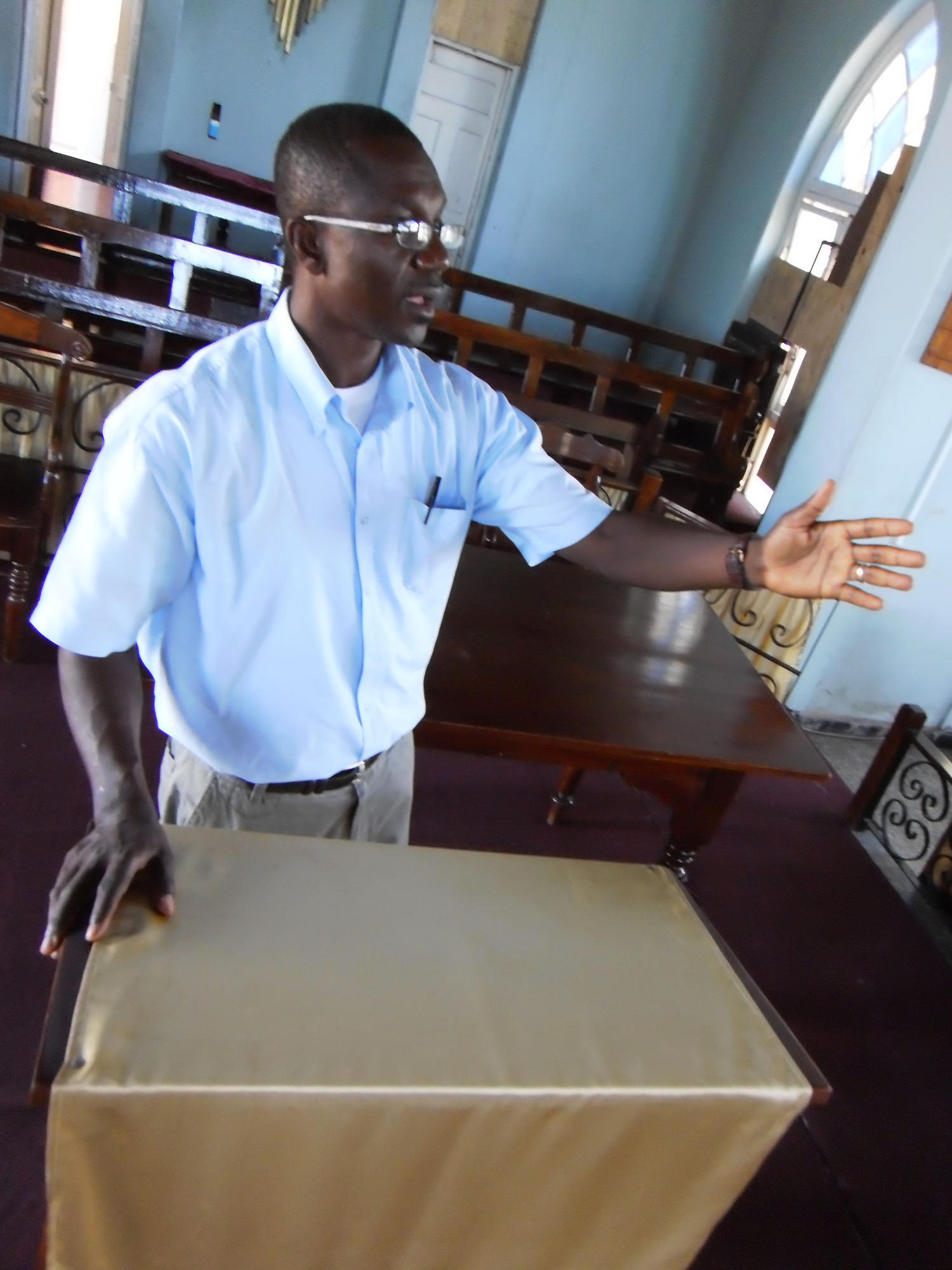Despite an unfortunate title which seemed to have fallen from the pages of the latest Cosmo sex survey (“add some spice to the bedroom: try reverse missionary”), the first instalment of this three-part series about faith, community and religious history had honourable intentions. Its starting premise was that Britain is not just broken but “saturated in secularism”, and throughout it acted as though both presumptions were not only a) true and b) indisputably Bad Things, but also that one was directly responsible for the other.
On paper the idea had a neat symmetry. A religious leader from a former British colony visits poor, Godless Blighty, the land that once exported Christianity en masse, and teaches it a thing or two about the 21st-century faith business. So it was that Baptist Pastor Franklin Small left his ghetto parish in Kingston (Jamaica, rather than upon Thames) for the Cotswolds village of King’s Stanley. Though it ticked most of the comfy Middle England boxes beloved of these life-swap programmes, there was another reason for choosing this particular locale. King’s Stanley was once the home of Christian missionary Thomas Burchell, who lit out for the Caribbean in the early 19th-century and “waged an epic campaign for slave emancipation”, as well as converting 8000 locals to the Baptist cause.
The current incumbent delivered a plum-themed sermon as though he were administering an anaesthetic
Burchell’s portrait hangs in the Jamaican National Gallery but he’s unknown over here. This fact, you feel, was supposed to be a profound statement on our moral decay rather than what it actually was, which is a pointed reminder that the history books recruit selectively.
Small was drafted in as supersub at King’s Stanley Baptist Church where – we were informed with due gravitas - Burchell’s wife had once worshipped. Today, the church is facing closure unless it gets more bums on pews (it attracts 17 regulars out of a population of 4000). You could see why the current incumbent – who delivered a plum-themed sermon as though he were administering an anaesthetic – wasn’t really doing the biz, so Small got stuck in. We saw him attempting some spirited calypso preaching - “Jesus is sweeter / Than coconut drops” – as the denizens of the local caff stared glumly at their home bakes. He did Bible readings in patois. The only thing that really stirred any interest, however, was a village football match. Most of the players did their pre-match training in the pub (“Why them go to the pub?" fretted Franklin. "Something is missing.") but he got a result: the next day a few youngsters (trans: under fifties) turned up at the church for some fire and brimstone speechifying.

Between these attempts to rouse King’s Stanley from its spiritual torpor (like much of the rest of the country, Sunday was now a day for watching live sport and necking Stella in a concrete "beer garden") we learned a little – but not much – about Burchell. This historic strand was rather awkwardly shoehorned in. A meeting with the missionary’s great-great-great-great grandson in the Lake District was dead air. Not until the very end, when Small visited Burchell’s overgrown grave and was moved to anger about someone he admired being lost among the weeds, did we sense a real connection.
Reverse Missionaries avoided most of the easy angles and cheap shots – it was thoughtful but somewhat over ambitious, and ended up being a curious and largely unsuccessful hybrid of several TV archetypes: the Burchell strand was Who Do You Think You Are?-lite; the examination of faith in action was a diluted version of Peter Owen-Jones's compelling spiritual quests; the black man parachuted into an English country garden echoed Love Thy Neighbour, C4’s risible census on prejudice in a small community.
No meaningful conclusions were reached. Small was engaging and vibrant and successfully highlighted the kind of intellectual – rather than moral or religious – apathy which responds to any attempt to trade in the currency of ideas with a shrug and a snigger. He certainly made an impact, but it was his humanity rather than his faith which enabled him to do so. Danny said he wanted to keep going to church, and troubled Kev embraced Jesus, though you had the feeling he would have embraced anything that held out its arms to him first. I’m not sure you’d put the farm on them still filing down the aisle a year from now.














Add comment